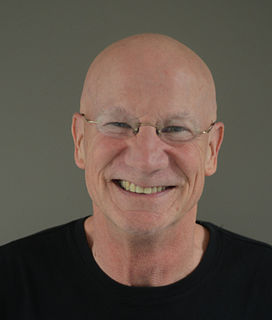A Quote by Fulke Greville, 1st Baron Brooke
How happy is it for us, that the admiration of others should depend so much more on their ignorance than our perfection!
Related Quotes
Being concerned about other people is especially relevant in today's world. If we consider the complex inter-connected ness of our modern lives, how we depend on others and others depend on us, our outlook will change. We’ll begin to see 'others' not as somehow distant from us, but as people we are in touch with, people close to us; we will no longer feel indifferent to them.
The Ideal Man should talk to us as if we were goddesses, and treat us as if we were children. He should refuse all our serious requests, and gratify every one of our whims. He should encourage us to have caprices, and forbid us to have missions. He should always say much more than he means, and always mean much more than he says.
The reason why the simpler sort are moved with authority, is the consciousness of their own ignorance; whereby it cometh to pass that having learned men in admiration, they rather fear to dislike them than know wherefore they should allow and follow their judgments. Contrariwise with them that are skilful authority is much more strong and forcible; because they only are able to discern how just cause there is why to some men's authority so much should be attributed.
... so our customary practice of prayer was brought to mind: how through our ignorance and inexperience in the ways of love we spend so much time on petition. I saw that it is indeed more worthy of God and more truly pleasing to him that through his goodness we should pray with full confidence, and by his grace cling to him with real understanding and unshakeable love, than that we should go on making as many petitions as our souls are capable of.
Encourage others each and every day-nothing's more important than our words. Did you know that, on average, each of us speaks about twenty-five thousand words daily? My last book didn't have that many words. A lot of language is flowing out of our mouths every day and having an impact on those around us. But how much of that flow is fulfilling God's intended purpose for our speech? How much of it reflects pride, rather than a gospel-motivated humility?
Detachment is not indifference. it is the prerequisite for effective involvement. Often what we think is best for others is distorted by our attachments to our opinions. We want others to be happy in the way we think they should be happy. It is only when we want nothing for ourselves that we are able to see clearly into others needs and understand how to serve them.
What's been important in my understanding of myself and others is the fact that each one of us is so much more than any one thing. A sick child is much more than his or her sickness. A person with a disability is much, much more than a handicap. A pediatrician is more than a medical doctor. You're MUCH more than your job description or your age or your income or your output.
When we depend on anything smaller than God to provide us with the security, significance, meaning, and value that we long for, God will love us enough to take it away. Much of our anger and bitterness, therefore, is God prying open our hands and taking away something we've held onto more tightly than him.
When we work so hard at our preparations for Christmas, we often feel cheated and frustrated when others fail to notice the results of our efforts. We need to ask ourselves why we are doing the things we choose to do. If love motivates us-love for our families, for our neighbors - then we are free to simply enjoy the actual process of what we do, rather than requiring the approval and admiration of others for the results of our labors.
My wish and hope, every year, is that people's life chances - their chances of having a happy, prosperous, healthy life for themselves and their family and friends - should not depend on accident of birth. It shouldn't depend on where you're born. It should depend on who you are and what you do. But it shouldn't depend on the chance and the luck of being born in the U.S. or in a poor village in Sub-Saharan Africa or India or wherever it may be.


































